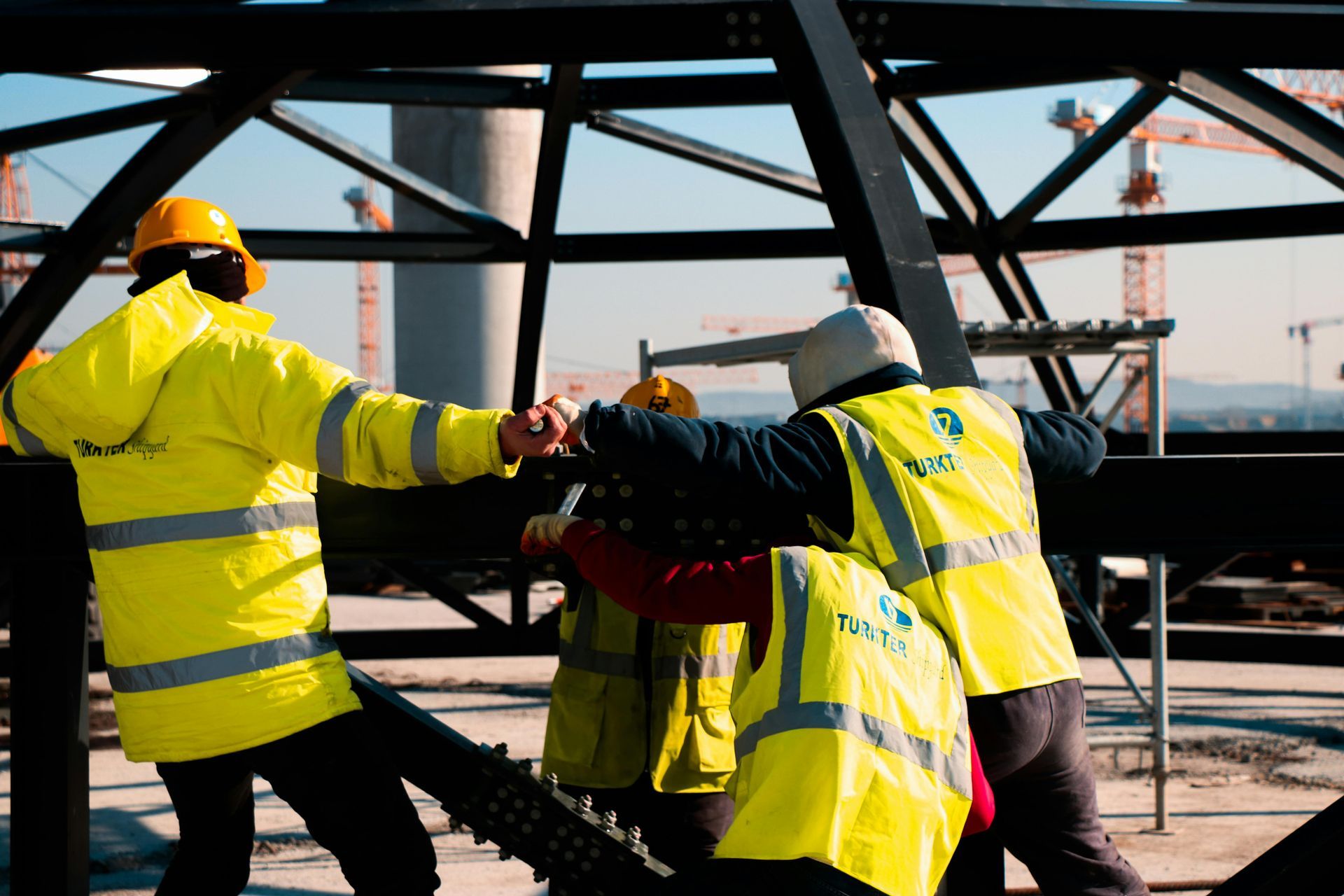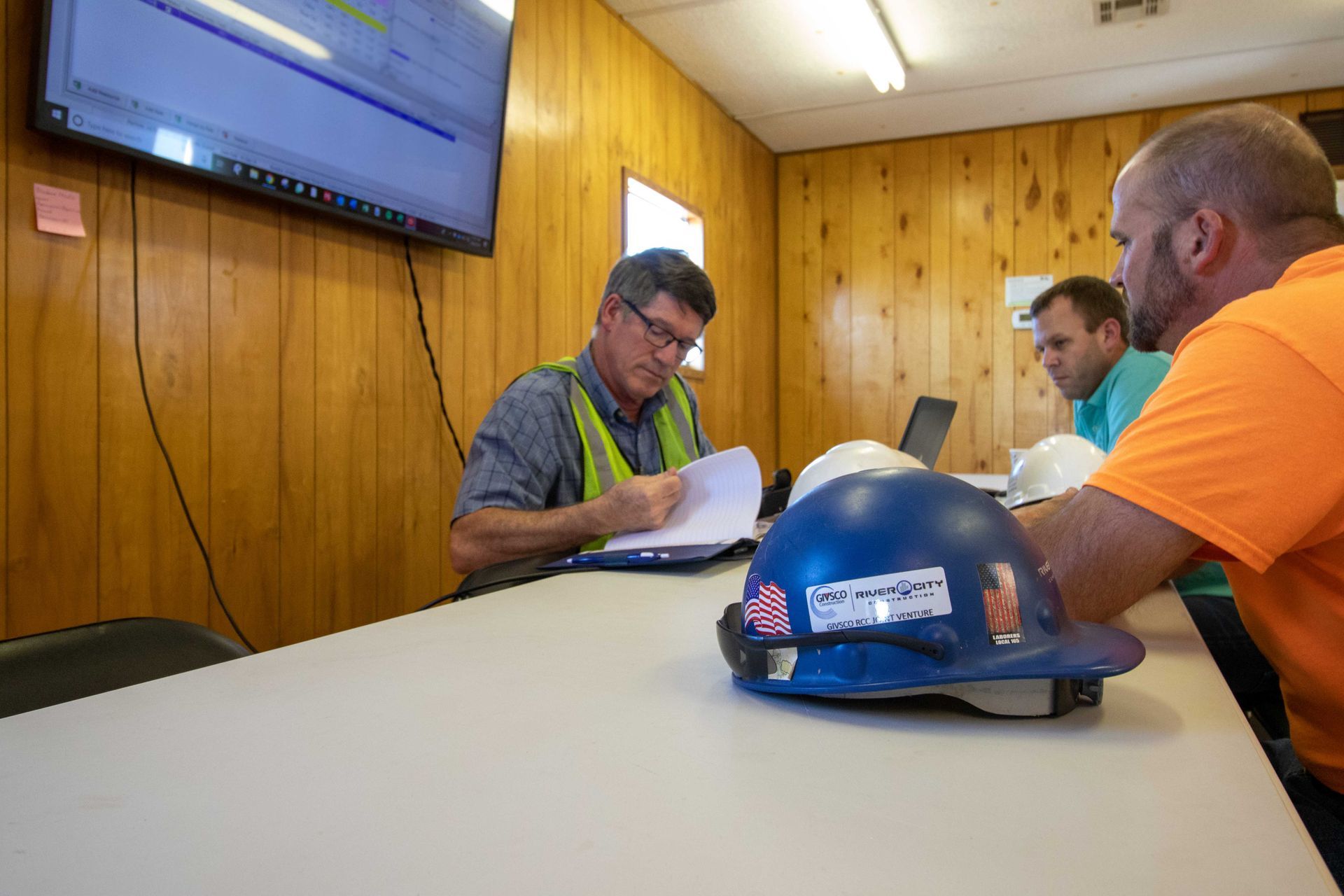Common Careers in Commercial Construction
The commercial construction industry is booming across the United States and worldwide. Many young people are looking to start careers in commercial construction, and others are entering the field after a career pivot.
If you've never had a family member or friend work in the construction industry, you may not be familiar with all the specialty roles and moving parts involved in successfully finishing a project.
Whether you prefer hands-on work on the job site, detailed planning in the office, or overseeing large-scale projects, there is likely a role in commercial construction that fits your skill set. Here are a few of the most common roles in commercial construction and what they entail.
Project Manager
A Project Manager is "the ship's captain" during a construction project. They oversee the entire process, from initial planning and budgeting to completion.
Project Managers coordinate with clients, subcontractors, and suppliers to ensure the project is completed on time, within scope, and within budget. They create schedules, manage resources, and make critical decisions to keep everything on track.
Strong organizational skills, leadership abilities, and experience in construction are essential for those interested in this career. A background in construction management, civil engineering, or a related field is often preferred.
With the increasing complexity of commercial projects, the role of Project Managers is becoming even more vital, making it an advantageous career choice.
Construction Superintendent
The Construction Superintendent is the boots-on-the-ground leader who manages day-to-day operations at the construction site. They oversee the construction crew, coordinate subcontractors, and ensure the project adheres to the blueprints and specifications.
Superintendents are responsible for quality control, safety compliance, and timely progress. They often collaborate closely with the Project Manager to align on the project's objectives and deadlines.
A successful Superintendent must deeply understand construction processes and safety regulations. This role is ideal for someone who enjoys leadership and has hands-on experience in construction.
Superintendents often start their careers as laborers or tradespeople and work their way up, gaining valuable experience in the field.
Estimator
Estimators play a crucial role in the commercial construction process by determining the costs associated with a project. They analyze blueprints, specifications, and other documents to estimate the labor, materials, and time required.
Estimators also consider risks, market conditions, and potential challenges to develop accurate bid proposals.
Those in this role need strong analytical skills and attention to detail. They often use specialized software to calculate costs and present detailed reports.
Many Estimators have a background in construction management, civil engineering, or a related field; this career is well-suited for individuals who enjoy problem-solving and have a knack for numbers.

Site Foreman
The Site Foreman is a hands-on supervisor who ensures that specific operations run smoothly on the construction site. They lead the crew, delegate tasks, and monitor the work quality.
Site Foremen typically report to the Superintendent and must be knowledgeable about construction techniques, safety protocols, and project timelines.
A Site Forman is crucial in troubleshooting on-site issues and adjusting as needed to keep the project on track.
This role is typically held by experienced tradespeople who have moved up the ranks. Strong leadership and communication skills are essential, as Site Foremen must effectively manage a diverse team of workers and collaborate with other site supervisors.
Construction Engineer
Construction Engineers apply engineering principles to the construction process, ensuring that structures are designed and built to be safe, efficient, and sustainable. They work on designing blueprints, analyzing project specifications, and addressing technical challenges.
Construction Engineers often collaborate with architects, contractors, and project managers to bring a project to life.
A career as a Construction Engineer requires a degree in civil engineering or construction engineering. This role is perfect for those with strong analytical skills and a passion for problem-solving.
As construction projects become more complex, the demand for skilled Construction Engineers continues to grow.
Safety Manager
Safety is a top priority in commercial construction, making the role of a Safety Manager critical.
Safety Managers develop and implement safety policies, conduct regular inspections, and ensure compliance with local, state, and federal regulations. They also provide worker training, investigate accidents, and continuously monitor the site for potential hazards.
This career is ideal for individuals with a background in occupational health and safety, construction management, or a related field. Attention to detail, strong communication skills, and a proactive approach are vital for this role.
Safety Managers are vital in preventing accidents and ensuring everyone on the job site goes home safely.
Project Architect
Project Architects are the visionaries behind the design of commercial buildings. They work with clients to develop architectural plans that meet functional requirements and aesthetic preferences.
Project Architects are involved in the planning, designing, and reviewing construction projects. They ensure the building complies with all codes and regulations while meeting the client's needs.
This role requires a degree in architecture and often requires licensure. Creativity, technical skills, and an eye for detail are essential for success in this career.
Project Architects are crucial in bridging the gap between client expectations and the practical realities of construction.
Construction Laborer
The construction laborer is at the foundation of every construction project. Laborers perform various tasks, from digging trenches and laying asphalt to operating heavy machinery and handling materials. This physically demanding work requires stamina, strength, and a willingness to work in various weather conditions.
Many Construction Laborers learn their skills on the job, making this an accessible entry point into the construction industry. With experience and training, laborers can advance to more specialized roles or supervisory positions, making it a great starting point for those interested in a long-term career in construction.

Work With Thomas D. Wilson Consulting
The commercial construction industry offers a variety of career paths, each crucial to a project's success.
From managing entire projects as a Project Manager to getting hands-on as a Construction Laborer, there's a position to fit almost any skill set or interest. Commercial construction might be the perfect fit if you want to build a career in a dynamic and rewarding field.
The world of commercial construction evolves with every season. At Thomas D. Wilson Consulting, Inc., we've experienced all the industry's twists and turns and are ready to consult on your projects to ensure they stay on time and within budget. We are construction scheduling experts and know programs like SmartPM™, Primavera™, and many more.
Let's talk about your next project!






